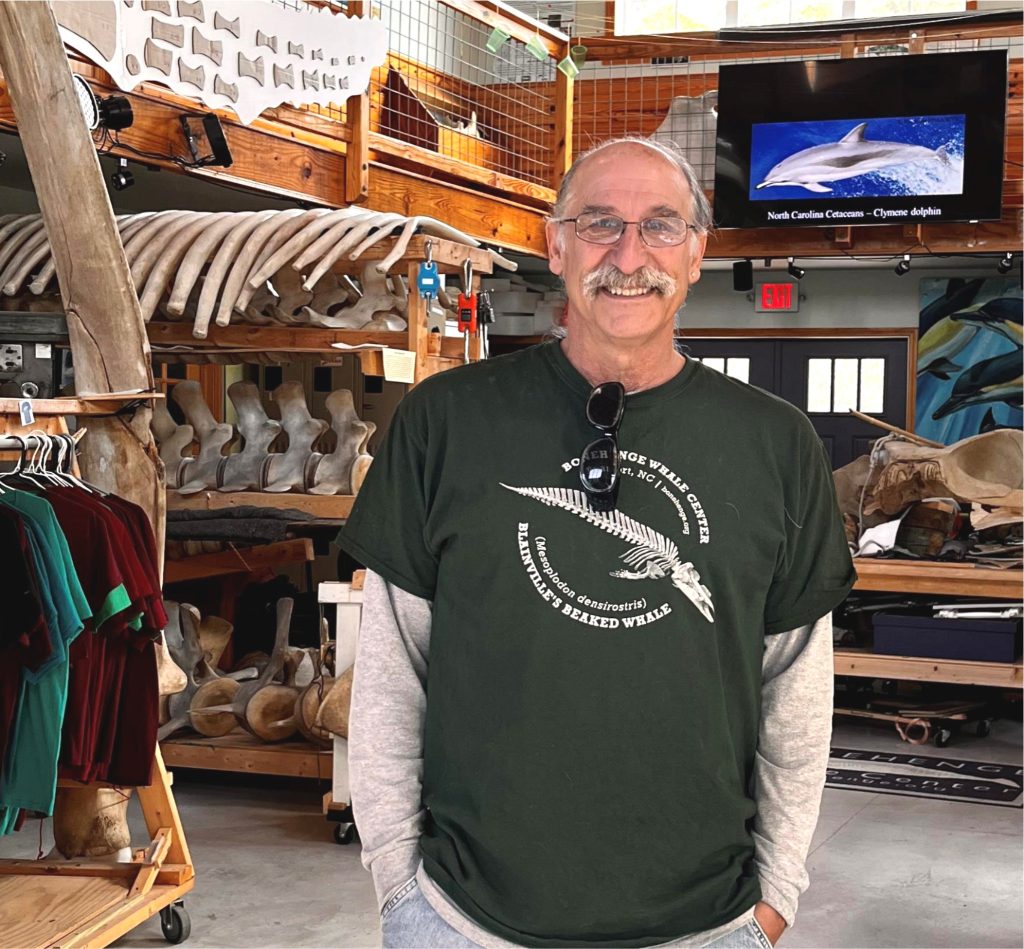
Thirty-five species of living cetaceans (whales, dolphins, and porpoises) have been documented in the waters off North Carolina. All of that whale activity keeps Keith Rittmaster of the NC Maritime Museum and Bonehenge Whale Center busy. Using captivating images and hands-on display items, such as bones, teeth, oil, and baleen, Keith will take us a journey to understand the species he encounters and some of the conservation issues they face.
Join us in-person or watch the livestream on YouTube.
In 1985, Keith, with colleagues, began a long-term photo-identification study of the bottlenose dolphins near Beaufort, NC to investigate residency, migration, associations, reproduction, and mortality. Keith also responds to reports of dead, dying, and entangled marine mammals as part of the NC Marine Mammal Stranding Network directed by his wife Vicky Thayer. Both Keith and Vicky are members of the Atlantic Large Whale Disentanglement Network and initiated the NC Monofilament Recovery and Recycling program to address the conservation issue of protected marine wildlife becoming entangled in discarded fishing line/nets. They also study, prepare, and rearticulate cetacean skeletons for research, education, and display at the Bonehenge Whale Center recently built by volunteers through a charitable non-profit organization.
About Our Speaker
Keith Rittmaster, Natural Science Curator at the NC Maritime Museum and Director of Bonehenge Whale Center
Keith has worked as a marine mammal scientist on research projects in the eastern tropical Pacific Ocean, Cook Inlet Alaska, Gulf of Mexico, and northwest Atlantic Ocean. Keith and Vicky have 2 adult daughters and live in Beaufort, NC with their dog, cat, chickens, and abundant tidal marsh wildlife. Keith was born and raised in Princeton, NJ. He received a B.A. in Economics from Denison University (1979) and a Master’s in Environmental Management from Duke University (1981).
Grab a bite from the Daily Planet Café and join host Chris Smith for our monthly Science Café. Gather with other curious minds at this after-hours event for an informal presentation and conversation about current science topics with guest experts. The Daily Planet Café is open 5–8pm with a full menu during the Science Café.


